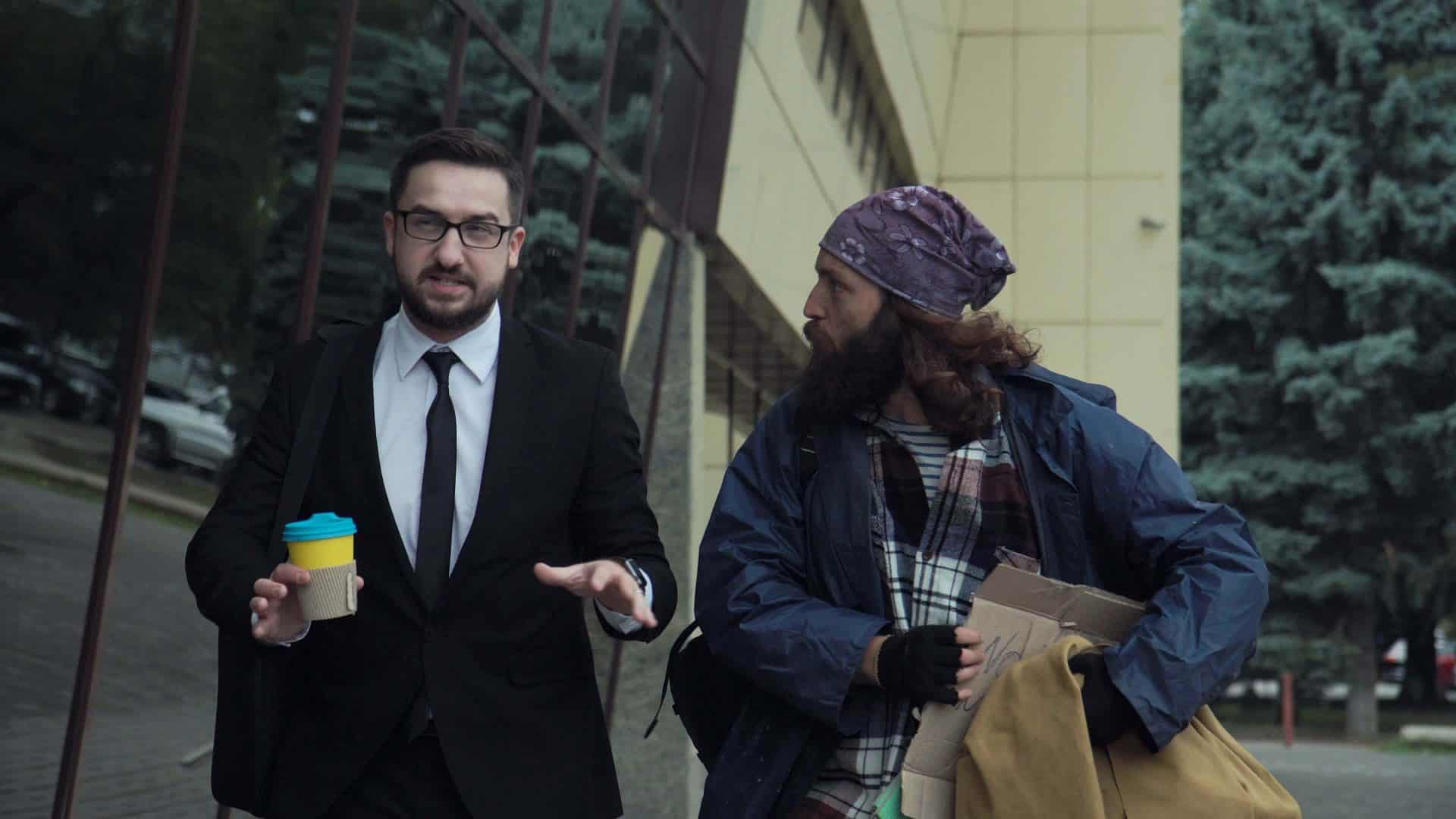Helping the Poor
by CAPP-USA

Helping the poor requires conversion, courage, and structural change.
Who are the Poor?
The Church teaches a preferential option for the poor. But who are the poor? Helping the poor first requires understanding who we are called to help!
The preferential option for the poor “extends not only to material poverty but also to the many forms of cultural and religious poverty.” (CCC, 2444)
Material poverty – which consists of “living conditions opposed to human dignity: those who lack basic rights and needs”. (Pope Francis, 2)
Moral poverty – which consists of “slavery to vice and sin”. (Pope Francis, 2)
Spiritual poverty – “which we experience when we turn away from God and reject his love.” (Pope Francis, 2)
All these forms of poverty require and deserve a “preferential option”.
Jesus on Helping the Poor
Christ often spoke of our duty toward those in poverty. And this applies to all its forms!
“Give to the one who asks of you, and do not turn your back on one who wants to borrow.” Mt 5:42 because “Without cost you have received; without cost you are to give.” Mt 10:8
“Whoever has two tunics should share with the person who has none. And whoever has food should do likewise.” Lk 3:11
“Jesus, looking at him, loved him and said to him, ‘You are lacking in one thing. Go, sell what you have, and give to [the] poor and you will have treasure in heaven; then come, follow me’.” Mk 10:21
“Sell your belongings and give alms.” Lk 12:33
“When you hold a banquet, invite the poor, the crippled, the lame, the blind”. Lk 14:13
Jesus on Helping the Poor – To What End?
“Whatever you did for one of these least brothers of mine, you did for me.” Mt 25:40
“Then the king will say to those on his right, ‘Come, you who are blessed by my Father. Inherit the kingdom prepared for you from the foundation of the world’.” Mt 25:34
How to Help the Poor
While it is true that “The poor you always have with you”, Jn 12:8 there are ways of helping. “It is all men who are called to further the development of human society as a whole.” (Pope St. Paul VI, 17)
The preferential option for the poor “will never be fully attained unless people see in the poor person, who is asking for help in order to survive, not an annoyance or a burden, but an opportunity for showing kindness and a chance for greater enrichment.” (Pope St. John Paul II, 58)
“We need to broaden our perspective…We need to grow in a solidarity which ‘would allow all peoples to become the artisans of their destiny’, since ‘every person is called to self-fulfillment.’” (Pope Francis, 190)
“Where the poor are concerned, it is not talk that matters; what matters is rolling up our sleeves and putting our faith into practice through a direct involvement, one that cannot be delegated.” (Pope Francis, 7)
How to Help the Poor – It’s Also Spiritual
“Openness to God makes us open towards our brothers and sisters and towards an understanding of life as a joyful task to be accomplished in a spirit of solidarity.” (Pope Benedict XVI, 78)
And, this will take courage “to face the risk and the change involved in every authentic attempt to come to the aid of another.” (Pope St. John Paul II, 58)
Indeed, “Christian love embraces what is not lovable, it offers forgiveness”. (Pope Francis)
Ultimately, helping the poor “requires above all a change of life-styles, of models of production and consumption, and of the established structures of power which today govern societies.” (Pope St. John Paul II, 58)





